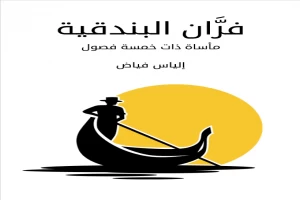Newly released
This book is new and will be uploaded as soon as it becomes available to us and if we secure the necessary publishing rights.

فرَّان البندقية: مأساة ذات خمسة فصول Book PDF
(0)
Author:
Elias FayyadNumber Of Reads:
29
Language:
Arabic
Category:
literatureSection:
Pages:
60
Quality:
good
Views:
661
Quate
Review
Save
Share
Book Description
Elias Fayyad
“Elias Fayyad” is a Lebanese journalist, writer, poet and politician, and he is the brother of the well-known poet and writer Nicolas Fayyad. Elias Youssef Fayyad was born in Beirut in 1872 AD to a family that loves literature and regularly hosts major writers and poets. He joined the Three Moons School in Beirut, then traveled to Egypt in 1896 AD and studied law there at the French office, and from there to Paris, where he specialized and passed the final exams there, and then returned again to Egypt in 1903 AD, studying Islamic law, Egyptian laws and the English language. Elias Fayyad spent four years as a teacher at the Three Moons School in Beirut, then worked in the press. He was an editor at Al-Raed Al-Masry newspaper in Cairo, and a correspondent for Al-Basir newspaper in Alexandria, and Al-Mahabah and Al-Misbah newspapers in Beirut. He also held the position of editor-in-chief of the daily newspaper “Al Mahrousa” and was translating novels for “Akhbar Al-Youm” and “Al-Ahram” newspapers. He trained in the offices of senior lawyers in Egypt. After the announcement of the Ottoman constitution in 1908, he returned to Beirut to work as a lawyer, until he became an administrator in the Lebanese police in 1918, then was appointed as a judge in the Court of Cassation in 1921, and rose to government positions until he was elected to the Lebanese Council as a representative of Beirut in 1929, and reached the position of Minister of Agriculture While he did not stop writing in the Egyptian and Lebanese newspapers until the last day of his life. In contrast to articles, Elias Fayyad was fond of Arabic poetry, and he loved Abu Nawas for his delicate poetic sense. In his poems, Fayyad tended to stay away from difficult complex methods, and a poetry book was published for him in 1918 AD. He also wrote a poetic play entitled: “The Traitorous Wife”, the play “Duke Ferdinand”, and the play “Venice of Venice”, whose story was quoted in a movie. . He has translated a number of famous French plays into Arabic, and he has translated another group. “Elias Fayyad” died in Beirut in 1930 AD, he was mourned by his fellow poets of his time, such as “Khalil Mutran”, “Beshara Al-Khoury” and “Elias Abu Shabakah”.
Book Currently Unavailable
This book is currently unavailable for publication. We obtained it under a Creative Commons license, but the author or publisher has not granted permission to publish it.
Rate Now
5 Stars
4 Stars
3 Stars
2 Stars
1 Stars
فرَّان البندقية: مأساة ذات خمسة فصول Quotes
Top Rated
Latest
Quate
Be the first to leave a quote and earn 10 points
instead of 3
Comments
Be the first to leave a comment and earn 5 points
instead of 3